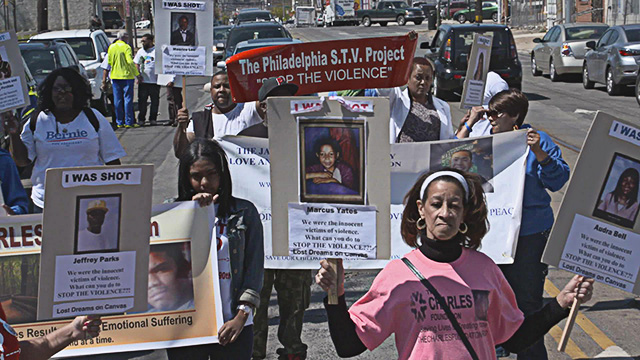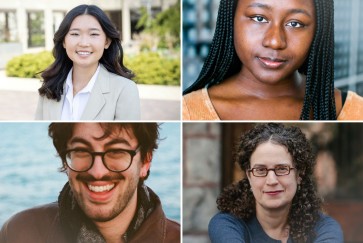The Office of the Provost is accepting applications to support scholarly and creative work for faculty in fields with little external or start-up funding through the Provost Grants for Research in Humanities, Social Sciences and the Arts.
Eligible expenses include funding for research assistants (including federal work-study students), purchase of research materials or equipment and expenses related to data-collection such as surveys.
Spring proposals are due March 29, 2021. See the website for more information on eligibility, criteria and how to submit an application online.
This year, the Office of the Provost is running two grant applications cycles. Applications for the first round of proposals were due in November. The 13 faculty below were selected to receive $3,000 grants to support their research projects.
2021 grant recipients
Danielle Beverly, radio/television/film, School of Communication, for “Qatar Stars,” a documentary that follows “The Olympic Stars,” a rhythmic gymnastics team for girls aged 9-15, and the first feature-length documentary to focus on girls in Qatar, a group unseen on screen until now.
Shawn Douglass, theatre, School of Communication, for “An Actor’s Arc,” a series of 10 remotely recorded interviews with accomplished actors whose careers are closely intertwined with the Chicago theater community, which will be available to the public and for use in the classroom.
Katherine Hoffman, anthropology, Weinberg College of Arts and Sciences, for “Mirror of the Soul: Language and Law in the French Protectorate Native Policy in Morocco (1912-1956),” a book project which brings an ethnographic approach to an historical examination of Amazigh (Berber) customary courts under the French Protectorate of Morocco (1930-1956) using newly discovered primary sources.
Patricia Marechal, philosophy and classics, Weinberg, for “Labors Not Lost. Midwifes, Craftswomen and Sages: Recovering the Voices of Women in Ancient Greco-Roman Philosophy and Medicine,” a synoptic map of the loci in the extant ancient philosophical and medical corpus that tracks the voices of women in antiquity.
Elvia Mendoza, Latina and Latino studies, Weinberg, for “Memory Demands an Image,” a multi-media installation based on ongoing ethnographic research in Chicago and south Texas with Latinx immigrant women on the racially gendered dimensions of the memory of state-sanctioned violence.
Julie Lee Merseth, political science, Weinberg, for “Black Lives Matter, Media Coverage and the Prospects for Cross-Racial Solidarity,” a project examining howmainstream media coverage of Black Lives Matter shaped how organizations such as Asian Americans Advancing Justice and UnidosUS (formerly the National Council of La Raza) work with Black movement leaders and advocate for Black lives.
Marcela Pizzaro, journalism and strategic communication, NU-Q, for “Race Historicised: Epistemologies of Color,” a series of animations depicting the lives and intellectual contributions of towering figures in anti-racist struggles.
Leondra “Onnie” Rogers, psychology, Weinberg, for “Beyond Black and White: Using Interviews to Understand Multiracial Identity during Sociopolitical Change,” a study designed to investigate how our sociopolitical moment of racial unrest and collective reckoning with injustice influences the identity development of multiracial individuals.
Ozge Samanci, radio/television/film, School of Communication, for “Evil Eye: A Graphic Novel,” a humorous and suspenseful graphic novel about two college-aged women in Istanbul that takes place before the city’s 1994 municipal elections, marking the start of President Recep Tayyip Erdogan’s relentless ascent in Turkish politics.
Lilah Shapiro, human development and social policy, School of Education and Social Policy, for “Armed with Faith: The Religion of Gun Ownership,” a qualitative study of gun owners/gun ownership that seeks to more explicitly expand our understanding of what counts as “religion.”
Ines Sommer, radio/television/film, School of Communication, for “The Hills,” a place-based documentary on the Schroud property on the Southeast side of Chicago that addresses conflicting community agendas and explores the question of who should be held accountable when past industry decisions cause serious public health and environmental issues in the present.
Spencer Striker, communication, NU-Q, for “Surviving Pandemics in History — a Virtual Reality Experience,” a playable prototype of an original virtual reality product that teaches students about the role and impact of severe pandemics in world history, across place and time.
Marco Williams, radio/television/film, School of Communication, for “Murders that Matter: Impact Campaign,” a proposal to work with grassroots organizations using his forthcoming documentary, “Murders that Matter” about Movita Johnson-Harrell, an African American Muslim mother who works to reduce gun violence and murder in African American communities.


